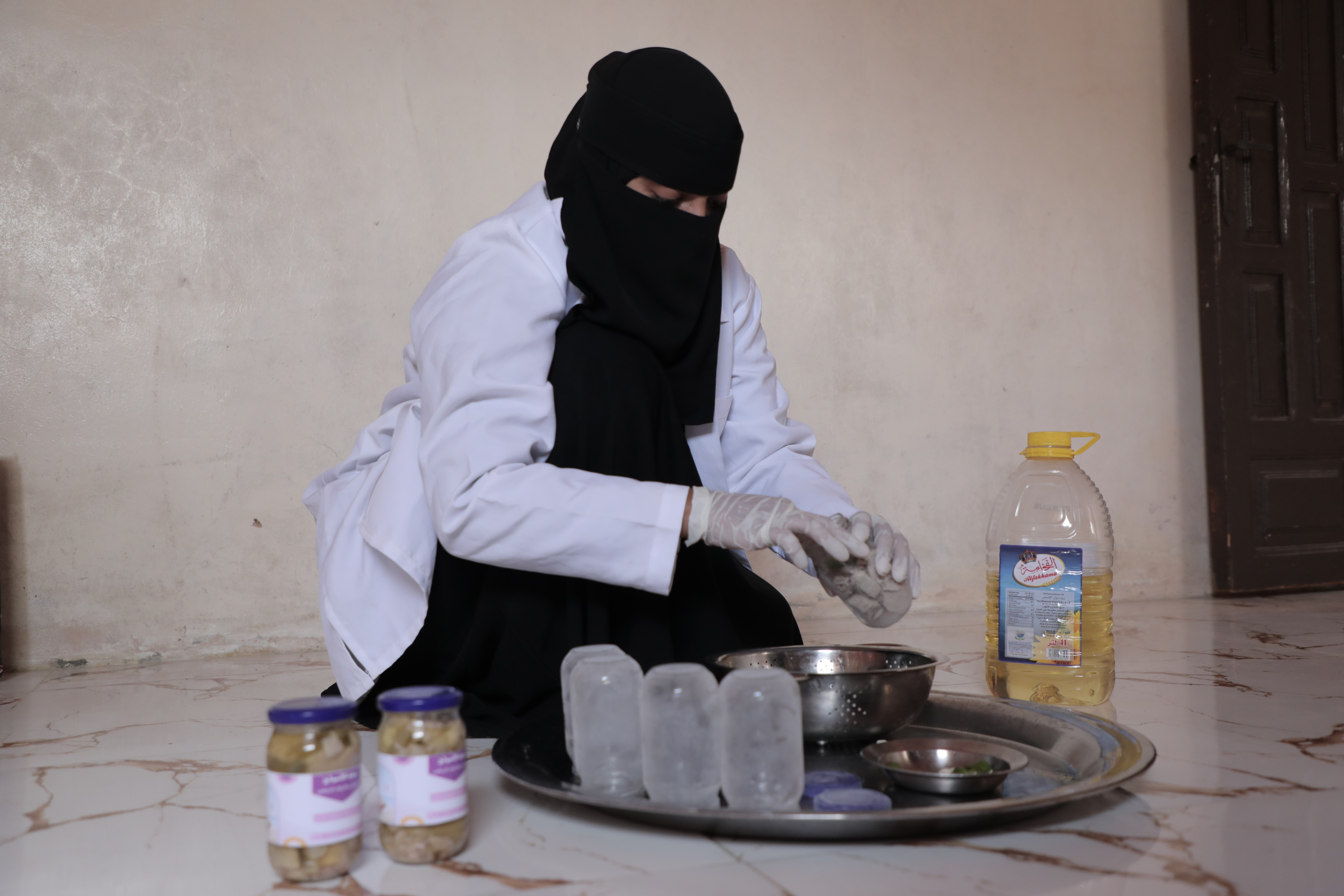Fatima’s fish business success in Yemen
September 27, 2024

Fatima showcasing her branded home-made Tuna.
Fatima, a 26-year-old resident of Broom Mifaa District in Hadhramaut Governorate, Yemen, holds a bachelor’s degree in mathematics and works part-time as a teacher. However, for Fatima and many young people in Yemen, finding sustainable employment, especially in their field of study, is a challenge. Economic instability and limited opportunities often leave youth struggling to provide for themselves or plan a stable future.
Determined to change her circumstances, Fatima aspired to acquire a skill that would not only provide her with financial stability, but also empower her to contribute meaningfully to her community. Her journey took a transformative turn when she joined the Sustainable Fisheries Development Project in the Red Sea and Gulf of Aden (SFISH), funded by the World Bank Middle East & North Africa in partnership with the United Nations Development Programme and implemented with local partner the Small and Micro Enterprise Promotion Service (SMEPS).


Fatima during the preparation of tuna production.
Fatima elaborates, “The knowledge and skills acquired were not limited to me alone but extended to my family, to whom I passed on my experiences.”
Fatima receiving training in fish product manufacturing and occupational health and safety procedures, including both practical and theoretical components.
Fatima says, “I gained insights that transformed me from an ordinary woman into an entrepreneur. I learned the steps to establish my project and how to become a businesswoman. On the practical side, I acquired the techniques for producing tuna, salted fish, and Haneeth (a traditional fish dish). All of which I applied in real-life situations."


A group of women trainees in fishery food production in Broom Mayfa in Hadramout
Upon receiving a grant following the training, Fatima joyfully exclaimed, “I couldn't afford any of these appliances: a refrigerator, oven, scale, household utensils, spice grinder, packaging machine, and occupational health and safety tools. Receiving them all at once was a great relief for me and my family.”


Distribution of the grants in Hadramout under the women and youth component.
When Fatima received her grant through the SFISH Project, she started producing tuna under a brand she created called "Al-Amwaj Tuna," and launched a successful marketing campaign on social media. The product gained immense popularity, with high demand leading to sold-out batches. Fatima sent a batch to Aden Governorate to cover the demand, offering free samples that led to a surge in orders.


Canned tuna products (Al-Amwaj Tuna) made by Fatima.
Fatima expresses delight at the initial success of her project, saying, "I have established a competitive name in the market, and demand for my product continues to grow significantly."
This success has inspired her to consider expanding to produce other varieties like Lokham (dried fish), in response to the high market demand experienced by her peers who ventured into these products post-training.
However, relying on the fish market is a delicate balance, and following her training, which included risk assessment, Fatima learned to base her production on fish prices. She operates her business only during the affordable fish buying seasons.
As a dedicated part-time teacher, Fatima carefully balances her responsibilities at school with her growing commitment to her new venture, and now spends her free hours working diligently on her project, applying the knowledge she gained to enhance her business and expand her impact.
Fatima’s journey didn’t stop with her personal growth; she is actively passing on the skills she learned to her family members, equipping them to assist her and manage the business in case of future challenges. Through her dedication, she is not just improving her own life but also uplifting her community, showing how opportunities can ripple outwards to create lasting change.
More information: Sustainable Fishery Development in the Red Sea and Gulf of Aden

 Locations
Locations



